
THE PRACTICE of mindfulness
leads to both psychological healing and profound spiritual insights.
To understand how,
we first need to look at the role of the mind in the formation of personality.
The person you are today was shaped by your past.
Imprints of past experiences exert a powerful but unconscious influence on your
thoughts, emotions, and behavior in the present.
Usually we’re not even aware of their effect.
Think about how much of daily life actually consists of mindless, automatic behaviors
driven by unconscious conditioning.
Of course, these are intermingled with intentional actions;
if an automatic response isn’t immediately available,
we have to consciously decide what to do or say.
But even these conscious choices are strongly influenced by conditioned mental states, feelings,
and what are sometimes called “intuitions†— deeply held views about
people, ourself, the world, moral values, and the very nature of reality.
All this conditioning serves as a powerful but completely unconscious influence
guiding conscious decision – making processes in unseen ways.
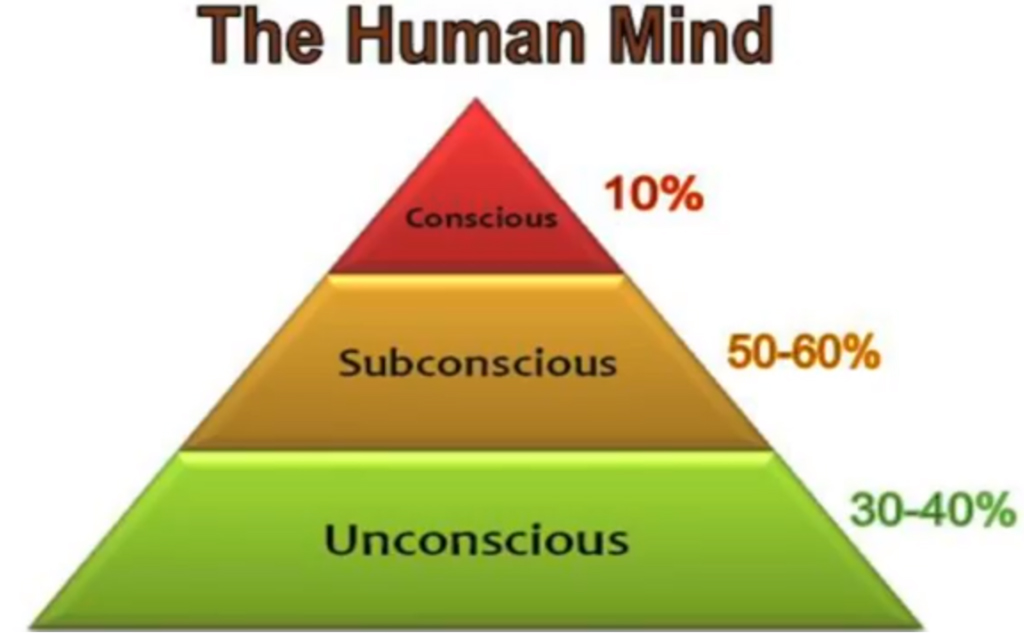
Unconscious conditioning is like a collection of invisible programs.
These programs were set in motion, often long ago, by conscious experiences.
Our reaction to those experiences — our thoughts, emotions, speech, and actions —
may have been appropriate at the time.
The problem is
they have become programmed patterns, submerged in the unconscious,
that don’t change.
They lie dormant until they’re triggered by something in the present.
When that happens,
we often get so focused on the triggering event and our own emotions
that these unconscious programs don’t take in any new information about the current situation.
That’s why they don’t change.
The practice of mindfulness works because it provides new information to these programs.
But how much reprogramming happens depends on our degree of mindfulness.
In other words, mindfulness has different levels of application.
At its most basic level, mindfulness is simply about moderating behavior.
The magic of mindfulness — its power to transform you as a person —
only starts working when we move beyond the first level.
At the second level,
by maintaining more powerful mindfulness for longer periods in daily life,
we become less reactive and more intentionally present.
The third level entails
reprogramming the deep conditioning that has shaped our personality,
and only occurs in meditation.
The fourth level is the radical reconditioning of the innate tendencies
that create all our suffering, and only occurs through Insight experience.
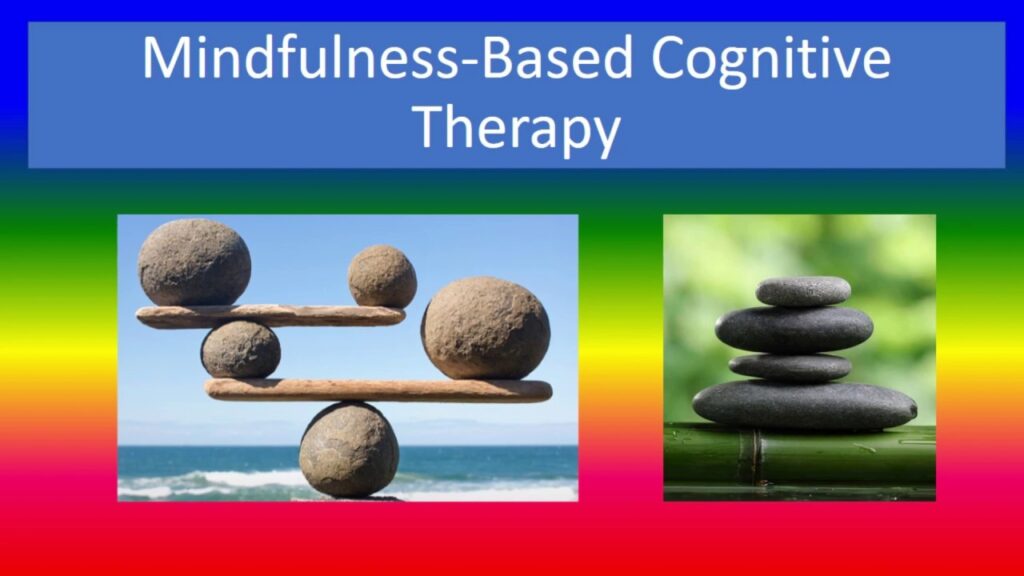
LEVEL ONE:
MODERATING BEHAVIOR
Over and over, specific situations in daily life happen to trigger our programmed patterns of behavior.
For example, if your partner, or even a stranger, says something that pushes one of your buttons,
you may become angry or annoyed.
Without mindfulness,
we react emotionally instead of responding rationally and intentionally.
Often, we just create more problems for ourself.
At the very least, we end up in a bad mood and become less effective at whatever we’re doing.
Staying mindful means you’re calmer, don’t react so quickly, or
get distracted by your own emotions.
With mindfulness you recognize more options, make wiser choices,
and take control of your behavior.
But if we can stay mindful,
we’ll also be calmer, and not react as quickly or be so distracted by our own emotions.
This allows us to be more attentive to our feelings and
aware of the situation and the potential consequences of our actions,
so we can regulate our behavior in positive ways.
Just being aware that
our suffering has more to do with our emotional reactions
than with what triggered them
can help us let go of those negative emotions more easily.
~
Mindfully acknowledging our emotions and taking responsibility for our reactions
lets us recognize more options, choose wiser responses, and take control of our behavior.
Awareness in the present moment
allows us to slow down and change our behavior, but
it doesn’t make any permanent changes.
The next time we’re in a similar situation,
we’ll behave in the same automatic, reactive way — unless, of course,
we’re mindful once again.

LEVEL TWO:
BECOMING LESS REACTIVE AND MORE RESPONSIVE
Everyone would like to make smarter choices.
However,
healthier responses to life situations are only one of the benefits of
attention and awareness working together.
The true “magic†of mindfulness is something completely different,
producing extraordinary spiritual and psychological transformations.
That’s why therapists now use mindfulness training
to help treat all kinds of emotional and behavioral problems, such as
stress, anger, phobias, compulsive behaviors, eating disorders, addiction, and depression.
The magic of mindfulness allows these people to overcome the psychological root of their problems. Thus
people who have cultivated mindfulness are more attuned and less reactive.
They have greater self-control and self-awareness, better communication skills and relationships,
clearer thinking and intentions, and more resilience to change.
How does this magic work?
When attention isn’t so totally captured by the intensity of the moment that awareness fades,
we’re able to observe ourselves more closely and consistently.
Attention and awareness provide the unconscious mind with new, real – time information
that is directly relevant to what’s happening right now.
Unconscious processes are informed that the reactions they’re producing
aren’t appropriate in the current situation, harming more than helping.
With this new information,
reprogramming can happen at the deepest levels of the unconscious.
And the longer we can be mindful in a particular situation,
the more new information becomes available,
and the more mindfulness can work its magic.
However,
the magic of mindfulness doesn’t end with the event itself.
Consciousness can continue to pick up on and communicate the consequences of the event
and their effects on our mental state long afterward.
So,
the duration of mindfulness is important, as is consistency.
The more consistently we can apply mindfulness to similar situations in the future,
the more its magic can change our conditioning.
Whenever some event triggers one of our “invisible programs,â€
we have the chance to apply mindfulness to the situation
so our unconscious conditioning can get reprogrammed.
~
Anytime we’re truly mindful of our reactions and their consequences,
it can alter the way we will react in the future.
Every time we experience a similar situation,
our emotional reactions will get weaker and be easier to let go of.
We can respond mindfully to the actual situation rather than reacting mindlessly.
As we grow less reactive,
we are empowered to respond more objectively and conscientiously.
Eventually those skillful qualities become our new conditioning.
Being truly mindful of your reactions and their consequences alters how you react in the future.
Whenever something triggers one of your “invisible programs,â€
it’s an opportunity to apply mindfulness.
But what if our emotions and past conditioning are so powerful in the moment
that we can’t change how we feel and act?
That’s all right.
As long as we stay mindful enough,
we give our unconscious processes new information,
and we will be more successful in the future.
With repeated effort,
we will become less reactive, maybe without even realizing it.
Even if we lose mindfulness completely in the heat of the moment,
we can still use it afterward to reflect on what happened,
by reviewing our reactions, and their impact on ourself and others.
By recalling the events vividly, examining them honestly and nonjudgmentally,
it will begin the process of reprogramming,
which in turn makes it easier to stay mindful in the future.
This is quite different from what usually happens.
Because it’s always painful to revisit a situation that made us uncomfortable,
we typically like to put it out of our minds, or if we can’t,
we try to justify what we did and place the blame elsewhere.
This keeps vital new information from reaching our unconscious mental processes.
Mindfully examining our actions also means that
we look objectively at our feelings about how we acted.
We may see that we feel guilty, for example, and
acknowledge that feeling guilty is an unpleasant consequence of our actions.
But we shouldn’t become submerged in that emotion.
If you do find yourself getting caught up in self-reproach,
you’re just reacting from and reinforcing more unwholesome programming.
Of course,
it’s much harder to stay mindful when it matters most, in difficult situations.
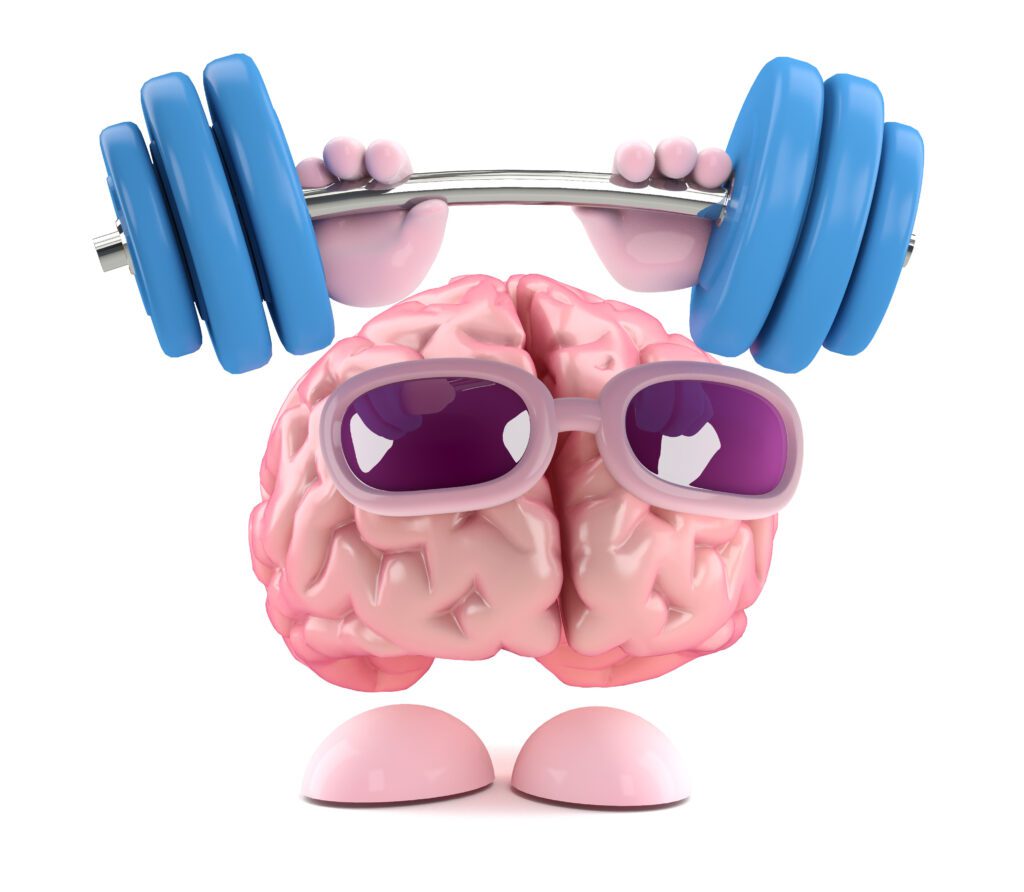
That’s why we need to intentionally practice mindfulness in everyday life,
especially when it’s easy, like when you’re driving a car or eating a meal.
Then you’ll build up the skill and the “mental muscleâ€
to stay mindful in the face of greater challenges.
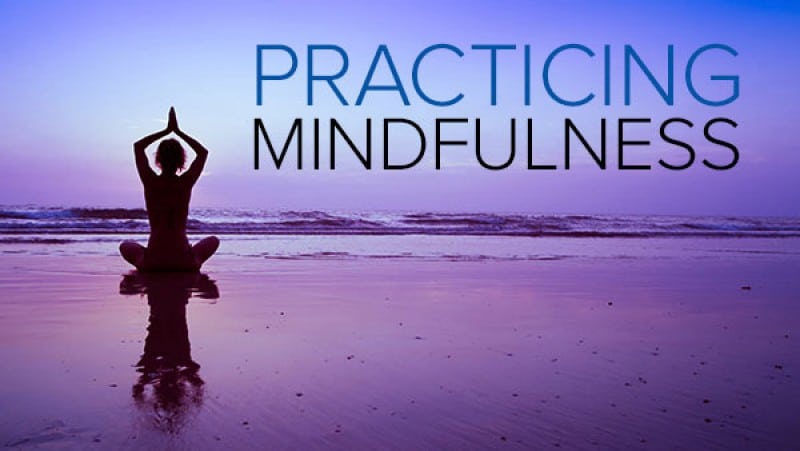
LEVEL THREE:
REPROGRAMMING DEEP CONDITIONING
In daily life, even if we’re mindful every moment,
unskillful conditioning can only get reprogramed when something triggers it.
So,
while it’s essential to practice in daily life,
mindfulness in formal meditation is even more effective, because
we don’t have to wait for something to trigger an unconscious program to practice with.
Instead,
when our minds grow stable and quiet, all kinds of deep memories, thoughts, and emotions
that drive our unconscious programs can come to the surface.
Then they can be purified by the illuminating the power of mindfulness.
Mindfulness in meditation can accomplish more than the piecemeal process of
confronting conditioning in daily life.
Conditioning that emerges in meditation drives a wide range of reactive behaviors.
The reprogramming that occurs in meditation also transforms the way we
think, feel, and act in more radical and broadly effective ways.
That’s because the unconscious conditioning that emerges is of a more fundamental nature,
driving a wide range of reactive behaviors that would otherwise require many different triggering events.
~
Conditioning of such a fundamental nature usually remains deeply hidden,
but can surface in the stillness of meditation.
Therefore,
the application of mindfulness in meditation can rapidly accomplish much more than ever could be
by the piecemeal process of confronting conditioning in daily life.
To really understand and appreciate this deep purification of mind,
it helps to consider how past experiences shape and condition our lives in the present.
Recall that every experience leaves an imprint in our minds.
The more emotionally powerful the experience, the stronger the imprint.
Most of us have a large “backlog†of imprints from emotionally charged or traumatic events
that don’t fit in with the person we’ve become.
These unresolved pieces of our personal history remain deeply buried in the psyche.
Often they are too painful or involve too much internal conflict
for us to confront and resolve head-on.
The events themselves may even have been forgotten,
but the unconscious conditioning they left behind influences our behavior
in ways we often don’t recognize.
Some of our conditioned reactions may help us, but many don’t.
And even helpful conditioning can appear at inappropriate times or in inappropriate ways.
Consider, for example,
the psychological challenges many war veterans face on return to civilian life,
when previously useful combat training gets in the way of readjusting to the everyday world.
This is because,
whenever our past conditioning is triggered,
it creates strong emotions that drive us to behave in specific ways.
Each person’s conditioned behavior—the way he or she typically acts and reacts—
is absolutely unique.
In fact,
what we call “personality†is precisely this set of behaviors.
And while having personality is a wonderful thing,
most people have personality traits that aren’t particularly useful.
Some traits are simply harmful.
But with mindfulness,
we can purify that deep conditioning
and change our personality for the better.
This purification occurs mainly in Stage Four, but also at Stage Seven.
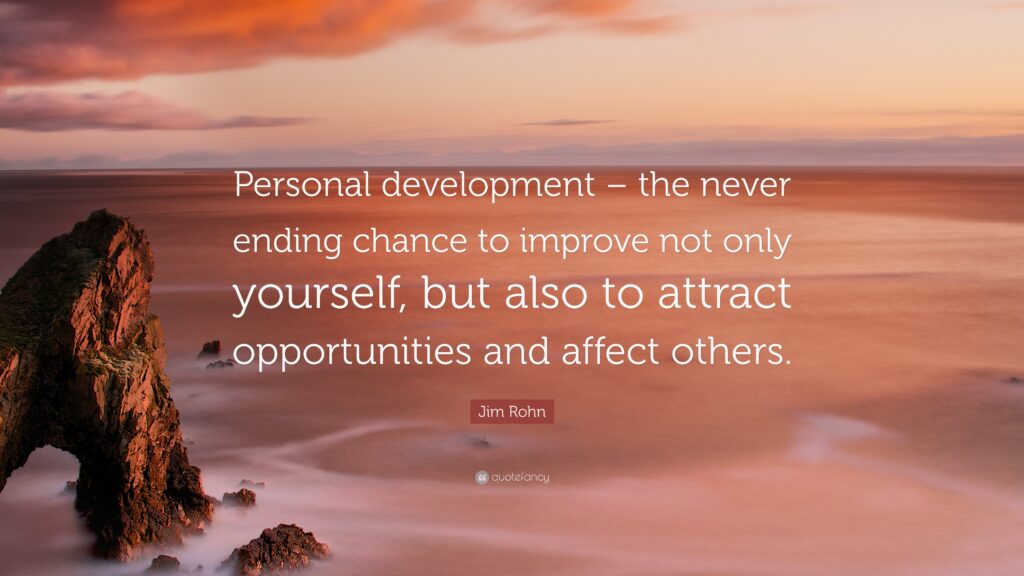
This series of articles highlight and focus on the first 3 stages
of the 10 stage process towards the Ultimate goal of Awakening.
I have come to regard these first three stages as outlined by
Neuro Scientist John Yates… AKA Culadasa
to be the most useful way to learn how to meditate
for Ultimate goal of meditation.

With his neuro science along with his psychology background and lifelong Buddhist Practice,
he has the unique qualifications to bring together the complete Spiritual Path together
in the most thorough way.
This subject has many different traditions and perspectives that for the most part
evolved separately in various locations around the world, and yet,
they all point toward the very same outcome…
Attaining the highest form of human consciousness possible, with names such as…
Enlightened, Awakening, Self-Realized… that all offer the Ultimate goal and Fruition of…
Liberation of pain and suffering.
Beyond these first 3 stages is beyond the scope of what I can effectively share,
but for those so inspired… This book is a must read:
The Mind Illuminated:
A Complete Meditation Guide Integrating Buddhist Wisdom and Brain Science
for Greater Mindfulness
by – John Yates; Matthew Immergut; Jeremy Graves


